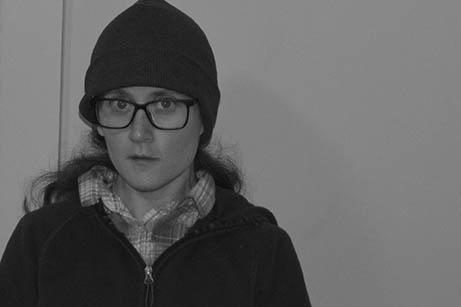
By Kerry-Lee Powell
The following interview was conducted via email with Editorial Assistant Kerry-Lee Powell in November 2018.
----
Kerry-Lee Powell: I'm so impressed with "Checkmate" as a whole, but it was a masterstroke to call your main 'character' Borderline — it shifts the piece beyond case study into allegory, and I'm feeling notes of Kafka and Orwell in the doublespeak of the Dr Phils, and the loops (bureaucratic and otherwise) that Borderline is unable to work their way out of. Another masterstroke was the use of multiple Dr. Phils, which lent the piece a dystopian air, at least to my ear. It's also very funny. Can you tell me what inspired your treatment of the subject?
Jill M. Talbot: My response to most questions about writing is “your guess is as good as mine,” which I realize must be terribly disappointing to readers. Actually becoming a writer definitely changed the way I read. I used to think writers had some sort of masterplan. Maybe they do, but I just put my pen down and see what happens.
I can say that this particular piece started as an actual letter. For most of my life I hadn’t said a thing, I went along with it all. So when I stopped doing that they all sort of fused together into one (Dr Phil) and I could see how everything had repeated itself.
There’s a huge performative aspect to meetings with professionals. I laugh to myself imagining it as an actual reality TV show. In writing it makes people use words like "masterstoke," in day to day life it makes me weird, awkward and unstable (or according to this specific professional, it made me "unwilling to be real"). They don't like it when you laugh, as one told me, "people laugh because they hear voices or because they don't take treatment seriously." I usually say, "I laugh because I'm already crying."
KLP: I can see in your bio that you studied psychology before deciding to devote your time to writing. This piece interrogates some of the ways in which psychologists fail their patients. When I read it, I couldn't help but think about the uses to which psychology is often now put in social media — all those chilling little personality tests on Facebook, for example. "Checkmate" has the main character googling herself and there's a sense that technological advancements (Google, Dr. Phil) only serve to reinforce negative stereotypes. What do you see for psychology in the future? What does creative writing do that psychology doesn't?
JMT: I don't think I ever decided to devote my time to writing. I mean the version people make in their heads sounds a lot better than the reality . . .
I went to university because it was what I was supposed to do, and I studied psychology because it was easy (at first) and then because I had some incredibly unhealthy relationships with people who chose my courses for me. I dropped out in fourth year because I wasn't there for the right reasons, I was a heroin addict and I wasn't emotionally all that stable. It was a miracle when things finally blew up, I only regret that didn't occur sooner.
I started being published when I didn't even know what literary magazines were. I was lucky and ignorant. Still being held back by systems and individuals, I really wasn't capable of devoting myself to anything other than people and substances. I didn't have enough of self to make such a declaration as "I'm going to be a writer." It was mania, boredom, and a desperation for a different life that first lead me to send my work out. By meeting writers I was able to learn quite a bit, but I ultimately don't feel any different from what I did back then.
I was interested in research psychology, not clinical. I was interested in moral development and identity. I was very young when I first had to make sense of the psychiatric assessments, and thus too young to realize that it was possible for authority figures to be incompetent. I think I brought up Google because I shouldn't have had to turn to the internet to begin with. Girl, Interrupted was set in the sixties, the main character diagnosed with borderline only found out by breaking in to the psychiatrist's office. So it's not necessarily something that has changed.
The problems of clinical psychology/psychiatry (this piece deals more with the latter), are outside of the internet itself. We are living in a disconnected world, but I think it’s a cop out to blame Google. Does it reinforce negative stereotypes? I'm not sure. It can also reinforce positive ones. I've seen the new-age obsession with self-improvement outside of the internet and it looks about the same. It would also be silly for me to criticize the internet since the internet was largely how I escaped the world I was in. The internet is just a mirror, I guess.
I hear that doctors are turning away from the DSM, the obsession with labelling, and are moving towards more holistic approaches. This is what I hear. I’ve yet to see it. But I have hope. Not long ago we gave lobotomies to people merely for being eccentric. My favourite writer Janet Frame was saved from a lobotomy because her book won a prize. She was diagnosed with schizophrenia for almost no reason whatsoever, and I have similar beliefs when it comes to writers like Virginia Woolf. The way people talk about the emperor's clothes has changed, what hasn't changed is that he has none.
The mental health system doesn’t understand trauma. Many therapists do, but psychiatrists, workers, nurses etc. lag behind. Psychiatry also attracts people with God complexes. So when you combine that with inadequate training and sexism, you get Borderlines.
As for the difference between creative writing and psychology, that depends on which type of psychology.
Compared to clinical psychology? Writing doesn’t assess how broken you are, try to fix, abandon you if you’re not broken, and it doesn’t drown you in abstractions. It doesn’t put you in a box but rather gives you the tools to escape.
We had creative writing workshops in rehab but they were considered "complementary." No one thought it was that important because writing doesn't pretend that it can do things it can't, it doesn't attempt to save. People are easily impressed any time someone uses a medical or scientific term, even if it ultimately has no meaning. Clinical psychology's aim is to embrace abstractions and to get rid of subtext entirely. I think that's an incredible shame. It reminds me a lot of the complaints Wittgenstein made against philosophy. Psychology treats language as a means to an end that can fail us, writing embraces the failures of language and believes truth is in the failures themselves. Writing expands our language, psychology diminishes it.
Research psychology gets at many of the same truths as writing, but it seems to work very hard to prove what everyone already knows. Even though we can safely come to certain conclusions without data, there are people who work very hard to validate these assumptions. And I'm glad they do, but I'd rather have the freedom to explore all of human complexity without arriving at any particular answer. I used to joke that I had my existential breakdown when we had to read an article about rat laughter. It's not the full story but it's true that those types of assignments felt like creative suicide.
KLP: Borderline seems to long for a definite sense of self, even if that means being diagnosed with something as potentially lethal as anorexia. But Borderline makes an interesting declaration: I live on the borderline because I don't own a passport. Is there freedom in being borderline? Is there freedom in being nameless? Is there power? Borderline seems to speak for so many of us!
JMT: Yeah, I guess I partly used it that way because I’ve known so many women diagnosed with Borderline Personality Disorder, despite the fact that very few of them actually fit the criteria. It’s basically the label given when the system has given up, and it’s rooted in sexism. It’s the most problematic label in a system that is problematic in its very existence. However I remember when I first made that manic declaration, and then I quickly decided that my problem was that I lived in too many worlds. I guess I had a lot of visas and no passport! I personally view all labels as dangerous in terms of creating self-fulfilling prophecies. So the freedom in borderline is that although the abandonment is painful, you’re less doomed than you would be with another disorder. As for being defined by a label itself, it can seem freeing to some people.
It reminds me of an Erikson quote, “Many a late adolescent, if faced with continuing diffusion, would rather be nobody, or somebody bad, or indeed dead — and this totally and by free choice — than to be not-quite-somebody.” Our culture has taken this and put in on a pedestal. You’re not someone until you’re a victim. I was in a youth mental health group where I believe everyone’s problem was merely identity diffusion — and the system was set-up to give them a ready-made identity of sick, thus leading to identity foreclosure. They were paid to play out this role even. I think people are living in states of diffusion for longer and longer periods of time because of the culture or the power of being nameless. And perhaps also the internet . . .
At twelve step meetings people introduce themselves as “alcoholic/addict”. Many counsellors rightfully urge us not to do so. We are in recovery, we are survivors, we are friends, some of us are mothers, and some of us are writers. I think in Emily Dickinson’s poem she best explored the power with: “I’m Nobody! Who are you?” and later on in the poem, “How dreary — to be — Somebody!” Perhaps the question is if there’s power in being powerless.
Forgiveness and an ability to work out disagreements has been completely lost. I hate that I have to declare myself Borderline just to enter conversations because otherwise I have no victimhood status to defend myself with. We are required to come up with the worst possible interpretation of people's actions. It's a nightmare, psychologically speaking.
Of course having been away from academia for so long, I'm not the best judge of psychology's future. I do read journal articles from time to time and am interested in the work of some psychologists (Lisa Feldman Barrett, Jonathan Haidt, the now retired Bruce Alexander and Bruce Whittlesea, etc.). I don't think they have much effect on the world as even in rehab there was plenty of outdated information. People like certainty; they don't like their ideas challenged.
KLP: Among other things, Borderline has a complicated relationship with trauma, and is unsure of how much to reveal and how much to hold back. Reading the piece, I found myself thinking about the process of writing, and especially creative nonfiction. How much should the author reveal of themselves, and is the narrative and shape of a piece (creative) more important than the truth (nonfiction)? Should the shape of a piece tell a story that the bare facts can't? I'd love it if you could talk a little bit about the complicated structure of "Checkmate," and how you arrived at your final draft.
JMT: Many people who write or teach poetry and creative nonfiction seem to give the impression that one must uncover everything. I question this, especially when it comes from people who otherwise are incredibly private. I wonder about the boundaries we have — or lack thereof. I also wonder if the power is in what's held back.
I’ve thought of this just in answering these questions. Since this is creative nonfiction I think everyone knows that I am the main character, but do I go out and state it? I usually turn to fiction because I don’t want it to be about me, but I want to write about things I’ve lived through as a method of healing, and because it’s what I know. It’s what I want others to know. However, I wasn’t thinking about any of this when I was writing. It’s sort of like asking a painter to describe why they used the colour they did. They can probably come up with some reasoning after-the-fact, but unlikely were consciously aware at the time.
It's funny how many times I’ve heard, "people tell me I should write a book, my life has been that crazy!" For one, I've heard this so often it's unlikely that it is that unusual — or perhaps what would truly be unusual would be a story that was typical. But it also has the delusion that writing is successful because it shocks, when in reality that type of writing doesn't work. Because that's what life is. There's no structure in life. To put a structure on it anyway sometimes feels like a lie, but it's also the only way to heal. When we take trauma and alter the perspective, details or structure, we take away any power the trauma has. The truth is that story itself is not a part of reality, it's reality created through language.
I guess it doesn’t really matter how much personal information is involved, what is important is that you aren’t writing because it happened to you. I don't think factual details really matter. I mean there are ethical problems, of course. Furthermore, memories are so unreliable that I think we're kidding ourselves if we believe we can ever capture the truth. According to Kierkegaard, the truth captures us. Creative nonfiction takes the bare facts and tries to make sense of them. Perhaps by putting it into a certain shape it reveals the connections that were there all along. It's healing but I'm not sure it's necessary.
Of course I do sometimes worry about sharing too much, mostly because my life has not been typical, there are many aspects of shame. I usually decide this is actually a reason to write.
KLP: I can see on your bio that you write fiction, poetry, and creative nonfiction. If someone put a gun to your head and forced you to choose one genre only, forever and ever, what would it be and why?
JMT: I also had staged readings of one-act plays and have written a couple of radio dramas.
But if someone had a gun to my head I would probably say fiction. Then the next day I would write a poem and tell them to do their worst. Then I would write an essay about the experience (if I were still alive to tell it.)
KLP: Your name pops up on a lot of shortlists and prize awards lately. First of all, congratulations! But what are you working on? Can your fans expect to read a book of yours sooner or later?
JMT: Fans?
Borderline laughs nervously.
Most people in my day to day life don’t believe that I’m a real writer. I get a lot of condescension. So I still don’t think it’s real. A friend told me that most people think of writers as unicorns, they don’t expect to meet one in real life. I guess I feel the same, even about myself! To make things worse there’s another writer with the same name as me . . .
I’m not very good at staying focussed. When I promise one thing, I end up with something else . . . that said, I’m attempting to go back to a novella and I’m working on a poetry chapbook about the Downtown Eastside (where I’m now living). A list on my wall has about four other things on it. So I'm not entirely sure. There's enough material already there for collections...
It's been a hell of a ride just to get here. I honestly didn't think I'd still be alive to tell it.
----
Jill M. Talbot’s writing has appeared in Geist, Rattle, Poetry Is Dead, The Puritan, Matrix, subTerrain, The Tishman Review, The Cardiff Review, PRISM, Southword, The Stinging Fly, and others. She won the PRISM Grouse Grind Lit Prize, and was shortlisted for the Matrix Lit POP Award for fiction and the Malahat Far Horizons Award for poetry. She lives on Gabriola Island, BC.

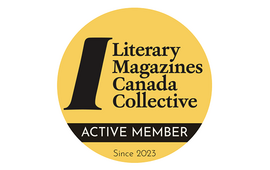


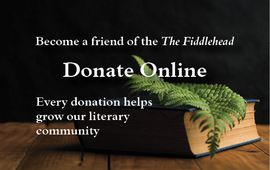
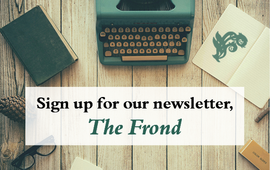
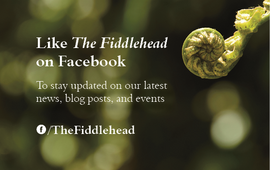




Add new comment